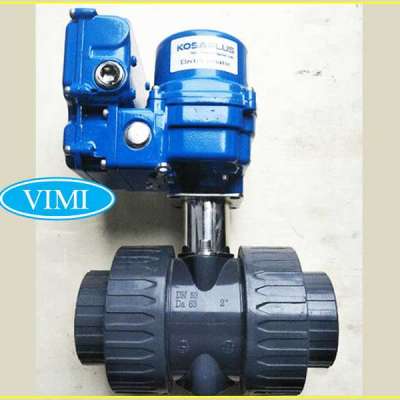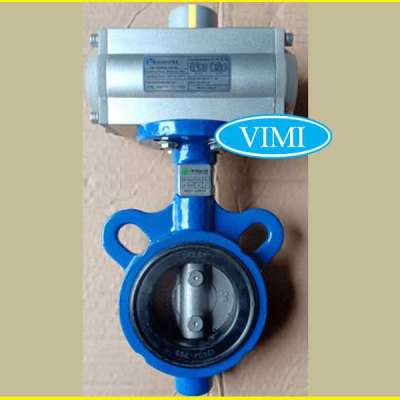Optimizing Revenue Cycle with Denial Appeal Management Software:
In the healthcare industry, denial of claims can be a significant hurdle to financial success. Billing errors, insurance discrepancies, and incorrect coding are just some of the reasons claims may be rejected, leading to delayed payments and increased administrative burdens. Addressing these denials swiftly and effectively is crucial for maintaining the cash flow and financial health of healthcare providers. Denial Appeal Management Software is an innovative tool designed to streamline the process of managing and appealing denied claims, reducing administrative time and improving overall reimbursement rates.
The Challenges of Claim Denials in Healthcare:
Claim denials are a major challenge faced by healthcare providers and can have serious financial consequences. According to industry statistics, a substantial portion of medical claims is rejected at first submission, and providers often face delays in receiving payment. Denied claims require time, effort, and resources to resolve, creating a backlog of administrative tasks that can be both costly and inefficient. In addition, when claims are not managed properly, healthcare providers may lose out on revenue or risk non-compliance with billing regulations.
Common reasons for denials include errors in patient eligibility, incorrect coding, missing documentation, or failure to meet payer requirements. In order to maintain a steady revenue cycle, healthcare providers need an efficient system that not only tracks denials but also facilitates prompt and accurate appeals.
What is Denial Appeal Management Software?
Denial Appeal Management Software is a specialized tool designed to help healthcare providers handle denied claims. This software enables users to identify, track, and manage claim denials in a more organized and streamlined manner. It allows for the automation of several processes related to claims denial, including the submission of appeals, tracking their status, and resolving discrepancies with insurance companies.
By providing a centralized platform to manage the appeal process, the software enhances efficiency, reduces the risk of errors, and improves overall financial performance. With the right denial appeal management system in place, healthcare providers can maximize their revenue potential by ensuring that valid claims are properly resubmitted and resolved.
Key Features of Denial Appeal Management Software:
Automated Denial Identification and Categorization:
One of the main features of denial appeal management software is the ability to automatically identify and categorize denied claims. The software scans claims data and flags any rejections, categorizing them based on the type of denial—whether it's due to coding errors, patient eligibility issues, or missing documentation. This automated process reduces the need for manual tracking and allows healthcare providers to quickly address claims that require attention.
Real-Time Tracking and Reporting:
Denial appeal management software enables real-time tracking of the status of appeals, offering healthcare providers visibility into which claims are still under review, which have been approved, and which are still pending. Detailed reporting features allow administrators to analyze trends, identify recurring issues, and develop strategies for reducing future denials. These insights are valuable for streamlining billing processes and ensuring more efficient claim resolution.
Integration with Electronic Health Records (EHR) and Practice Management Systems:
For maximum efficiency, denial appeal management software often integrates seamlessly with Electronic Health Records (EHR) and practice management systems. This integration allows the software to pull relevant patient and claim data automatically, reducing the need for manual data entry. It also ensures that the appeal process is streamlined, with all necessary information readily available to resolve the denial efficiently.
Customizable Appeal Templates:
Appealing a claim requires careful documentation and adherence to payer-specific guidelines. Denial appeal management software offers customizable templates that streamline the appeal process. These templates help ensure that all required information is included, reducing the chances of appeal rejection due to incomplete or incorrect submissions. This feature improves consistency and accuracy in appeal letters, making it easier for healthcare providers to resolve denied claims.
Collaboration Tools:
The software also facilitates collaboration among various departments involved in the denial management process, such as billing, coding, and administration teams. By enabling team members to work together in a centralized platform, communication is improved, and any issues can be addressed quickly. This collaborative approach ensures a more efficient resolution process and reduces delays in the appeal process.
Compliance and Regulatory Support:
With healthcare regulations constantly evolving, it's essential for denial appeal management software to remain compliant with industry standards such as HIPAA and payer-specific regulations. The software is often updated automatically to comply with these changing regulations, helping healthcare providers avoid fines or penalties associated with non-compliance.
Benefits of Denial Appeal Management Software:
Improved Revenue Cycle Management:
By automating the denial appeal process and ensuring timely submission of appeals, healthcare providers can reduce the number of unpaid claims, leading to improved cash flow. The software helps resolve denied claims more efficiently, ensuring that healthcare providers are reimbursed for their services without unnecessary delays.
Reduced Administrative Burden:
Handling denials manually can be time-consuming and labor-intensive. Denial appeal management software automates many aspects of the process, reducing the administrative burden on healthcare staff. This allows billing and coding teams to focus on more strategic tasks, ultimately improving productivity and reducing operational costs.
Increased First-Pass Resolution Rate:
By automating error identification and providing real-time tracking, denial appeal management software increases the chances of resolving claims on the first appeal. This reduces the need for multiple resubmissions and follow-ups, accelerating the reimbursement process.
Enhanced Accuracy and Reduced Errors:
Human errors in the denial appeal process can lead to further claim rejections. Denial appeal management software minimizes the chances of these errors by automating many aspects of the process and ensuring that all necessary information is included in the appeal submission. This increases the likelihood of approval and reduces the need for repeated appeals.
Data-Driven Insights:
The reporting and analytics capabilities of denial appeal management software offer valuable insights into the reasons for denials and the overall effectiveness of the appeal process. These insights allow healthcare providers to pinpoint recurring issues, implement targeted improvements, and reduce the number of future denials.
Conclusion:
Denial Appeal Management Software is a critical tool for healthcare providers looking to optimize their revenue cycle and reduce the financial impact of claim denials. By automating the denial identification and appeal process, healthcare organizations can streamline operations, improve cash flow, and ensure better reimbursement rates. With features like real-time tracking, integration with EHR systems, customizable templates, and compliance support, denial appeal management software empowers providers to effectively resolve denials and maintain a steady flow of payments. By leveraging this technology, healthcare organizations can improve operational efficiency, reduce administrative costs, and focus more on providing quality care to patients.
Source: https://www.osplabs.com/medica....l-billing-solutions/
Respect!
Kommentar
Delen















